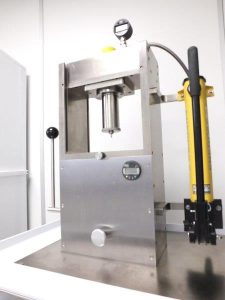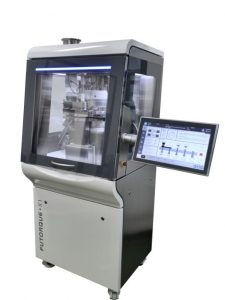Stages of Tablet Compression Equipment Used During Formulation and Process Development
Tablets are one of the most popular dosage forms used in the pharmaceutical, nutraceutical and veterinary industries due to their ease of handling and administration, stability, convenient packing options and well-established cost-effective manufacturing processes which produce consistent quality products.
Developing a tablet formulation from early stage concept design studies that will ultimately be scaled-up and suitable for commercial production, whilst minimising tableting issues that cause delayed timelines, cost money and could result in a product failing to make it to market is huge challenge for pharmaceutical formulation and process scientists.
Even with well-established manufacturing processes, it is vital to continually review the process mechanics when developing and advancing your tablet formulation along the various stages of product and process development: early feasibility prototype to first-in-human clinical studies, through later stage clinical studies and towards process validation and commercial manufacturing.
Throughout this development journey it is most likely that a range of equipment for both powder blend preparation and tablet compression will be utilised due to scale required and material availability. These changes in scale combined with increasing understanding and knowledge of the critical material attributes and process parameters associated with the product, require diligent and considered attention to minimise process challenges. Avoiding unintended changes in product performance. The development of a good tablet formulation starts long before the tablet making process, the inherent physicochemical attributes of the materials used, the optimisation of the preceding processing steps and method of tablet production all play a major role in the control and reproducible production of a good tablet. Factors such as: particle size, blending geometry, time and speed, granulation process parameters (including speed of binder addition), granulation end point determination and subsequent powder blend properties (such as power flowability) are all fundamental aspects of formulation and process development that influence how well a tablet formulation will behave when it reaches the tablet compression machine.
In this article we will cover only the different types of tablet compression equipment used at each stage of development and manufacture, why you might use them, the characteristics of the tablets produced and how the tablet presses and results differ from one another.
Pre-formulation Studies
The first fundamental requirement to successful development of a tablet is to understand the material science of the materials you are using. Active pharmaceutical ingredients (APIs) generally have insufficient inherent mechanical properties to form a robust tablet compact and will require the addition of appropriate excipients and processing techniques to aid tablet formation. These excipients will be chosen based on their documented material functions in order to impart specific properties (e.g. compressibility or disintegration) but the drug substance or API is likely to be largely uncharacterised in terms of its mechanical behaviour.
At this stage it is typical that limited API is available whilst cost is high. It is therefore important to be able to gain as much information as possible from as little material as possible. This is where compaction simulators and single punch tablet machine are often at their most valuable. First, compacts of the API alone can be produced. By monitoring the changes in the displacement of the tablet punches with changing applied pressure, a number of valuable material characteristics can be determined such as its compaction attributes (e.g. hard / brittle or soft elastic) and data generated about how the material behaves when pressure is applied. Factors that can be determined include deformation, strain rate sensitivity (how speed will affect its deformation) and ejection behaviour. By carefully considering these results in conjunction with the target product profile of the finished product, smart selection of the required excipients can be made. These studies can be performed with minimal API usage using equipment such as a compaction simulator and / or a single station tablet press. At Upperton we combine results from the compaction simulator and expertise provided by Merlin Powder Characterization Ltd and our in-house use of the Natoli single station NP-RD10 tablet press.

Single-station tablet presses are a cost-effective way of recording most of the above measurements and allow for inhouse ready access to the equipment. They offer several distinct advantages including:
- Affordable and easy to operate.
- Ideal for minimising API usage.
- The material for each tablet can be pre-weighed to eliminate any weight variation effects.
- Precise control / reproducibility of parameters such as compression form.
However, a single station machine cannot simulate the compression event of a high-speed production tablet press and the compression event is single ended (only the top punch is moving). Therefore, materials compressed in a single punch machine experience much longer dwell times (time under force) which can result in a stronger compact than would be achieved at normal tablet machine speeds. Despite these limitations the single station tablet press is a valuable tool in the early stages of tablet development. At Upperton we also have experience of using the single punch machine for applications such as investigating bilayer tablet and core-rod tablet production processes and materials.
Formulation Development
Based on the API properties determined in pre-formulation, specific excipients are chosen to provide the necessary deformation, binding, disintegration properties to create a robust tablet and to aid processing by improving properties such as powder flow and ejection force. Typically, at this stage several prototype formulations are prepared using excipients selected following an excipient compatibility study. Depending on the availability of API these can be made on a rotary tablet machine or more commonly will still utilise the single station press. At Upperton it is typical that the Natoli single punch machine will be used to screen several prototype formulations which will be evaluated for both physical and chemical properties.
Creating data on how the formulation performs at this stage is critical in selection of the lead formulation and / or making early decisions about whether excipient levels or compression parameters (force adjusting or control) to achieve the required tablet properties (hardness, disintegration or dissolution).
Once sufficient API is available and a limited number of lead formulations have been selected it is useful to transfer the compression process onto an instrumented rotary tablet press. Where the mechanical forces of compression are significantly different to those of a single punch machine and material properties such a flowability are more critically challenged.

Today there is a vast choice of instrumented tablet machines with a wide range of capabilities. At Upperton we use a KG Pharma Furtorque X-1 hybrid rotary machine which offers both excellent R&D capabilities combined with batch production outputs. This machine is ideal for use at this stage as it can be used with a small volume feeder and operated with a reduced number tooling stations (reduced to a single punch if required) to conserve material while still providing the mechanical action and forces of a high-speed rotary machine and compiling detailed data on the compression cycle.
Depending on the equipment used, it is often the case that the same tablet press equipment will be used to manufacture the on-going clinical supplies in addition to stability batches and supporting design of experiments; to improve our understanding and knowledge of the critical process parameters as we move towards process validation.
The Futorque X-1 is suitable for manufacturing clinical trial phase batches and depending on the scale and demand for tablets it will be often be suitable for the manufacture of commercial batches (e.g. low demand orphan drug products). For a larger scale product, a further scale up study will be required to cover parameters such as the effects of a shorter dwell time and the effect of tooling variations.
Scale-up
At this stage longer production runs can be tested to address any issues associated with larger batch sizes and increased production speeds. The effects of processing variables, excipient suppliers, changes in particle size and manufacturing conditions are also evaluated.
During this stage a pilot scale rotary tablet press is suitable to provide the longer tableting runs in which friction and heat may play a role and allows the scientist to identify any material and tablet quality issues. Only at this stage are potential problems such as sticking to the punch surface, tablet hardness, capping and weight variation often first detected. Once again at Upperton we utilise the versatile Futorque X-1 tablet press now operating in its production mode with a complete hopper and feeder systems and a complete set of tablet tooling.
At this stage it is important to investigate effects of factors such as raw material variables, assess how both the formulation will perform and what effect the formulation will have on the machine performance during prolonged high-speed multiple tablet compression and ejections cycles. During the running of a batch a number of variables will be challenged, including: the application and varying of pre-compression and main forces; turret and feeder speed with the aim of evaluating and establishing processing limits. To result in good tablet weight control, tablets with the required tensile strength (hardness) disintegration and dissolution profiles.
A key consideration in developing any product must be to ensure a robust formulation and process is available for transfer to commercial manufacturing equipment. Depending on the scale of the product pilot scale tablet machines such as the Futorque X-1, with its output of up to 120,000 tablets per hour, are perfectly suited to productions runs for small and medium sized batches; but we must also prepare for transfer to the ultra-high speed machines with outputs of over 1 million tablets per hour. Here again the data first produced on the compaction simulator can be applied to theoretically mimic the performance of these machines, but only by running on pilot scale machines can the formulations be truly tested.
The Futorque X-1 tablet machine has integrated software that uses the data collected during its running to calculate the process parameters required on a wide range of pre-selected larger scale compression equipment, to produce tablets with the same properties.
To Conclude
With the many challenges found in the tableting process, a clear understanding of your materials and processes is vital. Material science is fundamentally important in formulating a robust tablet that is scalable to the manufacturing environment. With the high costs of APIs and bulk powders, material-sparing systems such as the NP-RD10 single-station tablet presses and compaction simulators have a great value, but they cannot recreate the mechanical actions and prolonged manufacturing challenges of the equipment required to manufacture development and commercial batches.
It is therefore necessary for the tablet formulator to have either a range of tablet machines available suitable for the scale and material availability at their disposal or they need to utilise the benefits of the flexible hybrid instrumented machines such as the Futorque X-1; that have the versatility and adaptability to perform R&D studies, clinical manufacture, medium volume commercial manufacture and simulate large scale production equipment. At Upperton our formulation and process scientists have experience of developing and manufacturing a wide range of tablet products. Utilising direct compression, wet and dry granulation techniques, incorporation of spray dried dispersions, application of controlled release technologies from the early stages where only a few grams of material is available thorough to clinical supply and technical transfers.

